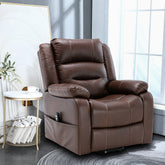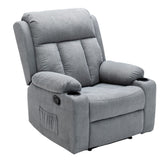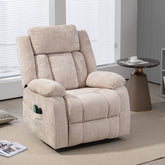Chair Art: How South African Offices Are Embracing Functional Aesthetics
The Impact of Smart Housing Solutions on South African Workspaces
The Transformation of Office Design
Smart housing solutions are reshaping South African offices. Gone are the days of dull, cookie-cutter spaces. Now, we see vibrant, flexible workplaces that boost creativity and teamwork. These new designs focus on comfort and efficiency. They use smart tech to create spaces that adapt to workers' needs.

Open floor plans with movable furniture are becoming common. This allows for easy reconfiguration based on tasks. Smart lighting systems adjust brightness and color throughout the day. This helps maintain employee alertness and well-being. Noise-cancelling technology creates quiet zones in busy areas. All these elements work together to make a more pleasant work environment.
How Smart Housing Enhances Productivity
Smart housing solutions in offices are not just about looks. They directly impact how people work. These innovations make tasks easier and more efficient. For example, smart desks remember each user's preferred height. This reduces strain and improves posture. Meeting rooms equipped with voice-activated tech streamline presentations.
Smart lockers allow for hot-desking, giving employees more flexibility. IoT sensors monitor air quality and temperature, ensuring optimal working conditions. Apps let staff book rooms or desks from their phones. This saves time and reduces friction in daily operations. By removing small annoyances, smart offices help workers focus on what really matters.
Why South African Businesses Are Choosing Smart Furniture
The Role of Ergonomics in the Modern Office
Ergonomics is now a top priority for South African businesses. They understand that comfortable employees are more productive. Smart furniture is at the forefront of this trend. Chairs with built-in sensors adjust to each person's posture. Desks change height at the touch of a button, allowing users to sit or stand.

Ergonomic keyboards and mice reduce the risk of repetitive strain injuries. Monitor arms let users position screens at the perfect height and angle. Even lighting is considered, with lamps that reduce eye strain. These features might seem small, but they add up. They create a workspace that cares for employees' health and comfort.
The Economic Benefits of Investing in Smart Furniture
At first glance, smart furniture might seem costly. However, South African businesses are seeing long-term benefits. Improved employee health means fewer sick days and higher productivity. Energy-efficient smart devices lead to lower utility bills. Flexible furniture reduces the need for office renovations as teams change.
Smart meeting rooms increase collaboration efficiency, saving time and resources. Data from smart devices helps optimize space usage. This can lead to reduced real estate costs. While the initial investment may be higher, the return on investment is clear. Smart furniture pays for itself through increased productivity and reduced operational costs.
The Future of Office Design in South Africa
Innovative Smart Furniture Trends to Watch
South African offices are embracing cutting-edge smart furniture trends. Biophilic design, which brings nature indoors, is gaining popularity. This includes smart planters that monitor soil moisture and plant health. We're seeing furniture with built-in wireless charging pads for devices. Privacy pods with sound insulation offer quiet spaces in open offices.

Modular furniture systems allow for quick reconfigurations. This suits the dynamic nature of modern work. AR and VR integrated workstations are on the horizon. These will revolutionize remote collaboration. 3D-printed custom furniture is becoming more accessible. This allows for personalized ergonomic solutions at scale. As technology advances, we can expect even more innovative designs.
Integrating Smart Technology with Office Design for Maximum Efficiency
The future of South African offices lies in seamless integration of smart tech and design. AI-powered systems will learn and predict office usage patterns. This will optimize everything from room bookings to climate control. IoT devices will communicate with each other, creating a truly responsive environment. Voice and gesture controls will become more common, reducing touch points.
Digital twins of office spaces will allow for virtual planning and testing. This will make renovations and updates more efficient. Augmented reality wayfinding will help navigate large office complexes. Blockchain technology might be used for secure, decentralized control of smart office systems. As 5G networks roll out, connectivity and data processing will improve dramatically. This will enable even more advanced smart office solutions.
The South African workplace is evolving rapidly. Smart housing solutions and furniture are at the heart of this change. They're creating spaces that are not just functional, but also beautiful and efficient. As technology advances, we can expect even more exciting developments in office design. The future of work in South Africa looks smart, comfortable, and productive.






Leave a comment
All blog comments are checked prior to publishing